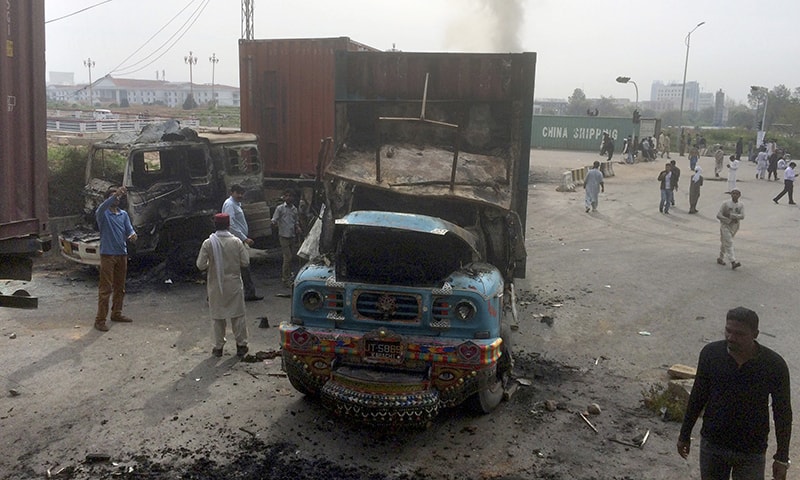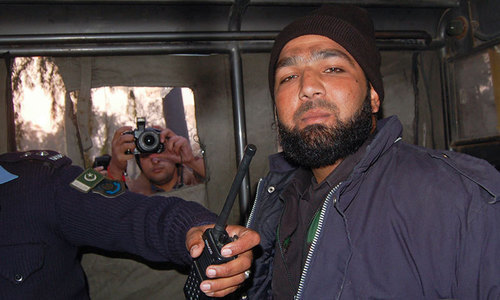Nearly 2,000 pro-Qadri protesters continue sit-in outside Parliament


ISLAMABAD: Around 2,000 people protesting the execution of Mumtaz Qadri — a former Punjab police commando hanged last month for assassinating Punjab governor Salman Taseer — are staging a sit-in at D-Chowk within the capital's Red Zone.
The demonstration that started early Sunday evening is still underway although the crowd has diminished from 10,000 to around 2,000 protesters.

The protesters led by Sunni Tehreek (ST) and Tehreek-i-Labbaik Ya Rasool (SAW) leadership had arrived in the capital on Sunday to attend Qadri's chehlum presented a charter of demand before the government and announced to stay in the Red Zone unless the government accepts these demands, which include implementation of Shariah in the country and declaring Mumtaz Qadri a martyr.
The set of 10 demands issued under the banner of the Tehreek-i-Labbaik Ya Rasool (SAW), include the unconditional release of all Sunni clerics and leaders booked on various charges, including terrorism and murder; the recognition of Mumtaz Qadri as a martyr and the conversion of his Adiala Jail cell into a national heritage site; assurances that the blasphemy laws will not be amended; and the removal of Ahmadis and other non-Muslims who had occupied key posts.

They also demanded the execution of blasphemy accused Aasia Bibi, the woman former Punjab Governor Salmaan Taseer was killed for defending.
Related: Liaquat Bagh to D-Chowk — a trail of destruction
The government on Sunday called in the army to control the law and order situation in the capital after some protesters resorted to violence and allegedly damaged public property.
The protest had turned violent as participants removed containers and blockades on the way to the Parliament House and also set some containers to fire before arriving outside the building where fiery anti-government speeches are being delivered.
Riot police had used tear gas and batons to disperse the stone-pelting crowd from the high-security zone outside the parliament building. 
Related: Violent mobs catch law enforcers off guard
Several major arteries leading to Islamabad were closed by authorities to block the crowd's route.
Cellular services were suspended in the Red Zone and adjoining areas before dawn on Monday.
Sunday's protest was almost entirely ignored by the media, which has increasingly become subject to government-ordered news blackouts designed to prevent unrest from spiralling out of control.
Regulatory body Pemra had cautioned channels against “jeopardising the National Action Plan” and said they should avoid coverage “driven by crass commercialisation like in India.”
Qadri, was working as a bodyguard for Punjab governor Salmaan Taseer when he shot him 29 times in 2011 over the governor's call to reform the blasphemy law, which critics say is frequently misused to oppress religious minorities.
Blasphemy is a hugely sensitive issue in Pakistan, where even unproven allegations can stir mob violence and lynchings.
Critics including European governments say the country's blasphemy laws are often misused to settle personal scores.













































